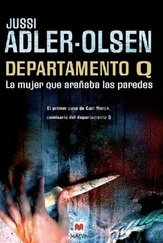The inside-dopester, having been, according to the morning paper, wrong again, was ranting slightly. Edith, whose nine-year-old has polish on her nails and a silver electric chair on her charm bracelet, was on the floor in contortions, trying to endear herself to a child. “Warren Bur ger,” the baby-food tycoon was saying to the assassination theorist. “ He’s no friend of the Establishment.” A young professor from Iowa, who was in the city for a lecture series on Wordsworth and the Lake Poets, spoke of his closeness to his own students, with several of whom he had had affairs, although he did not believe, in the academic context, in shacking up. He was preoccupied with his brightest student, a girl, with whom, during office hours, he engaged in — he wished there was an Anglo-Saxon word for it — fellatio. I said I thought it was sort of a metaphor for education, wasn’t it. Then I thought I had gone too far. But no. He said, “Exactly.” We all watched the “Eleventh Hour News,” which went on, of course, at the Twelfth Hour. Jim and I drove out to the country. It was very late. We stopped for coffee at an all-night dairy-and-diner on the way. A man got out of a truck, came in, ordered a milkshake, put his wallet on the counter, and mumbled something. Then he left, looking angry. “He asks me for a package of rubbers,” the man behind the counter said. “I mean, this is a dairy .” When our car broke down near the highway exit to the farm, a boy with a sign reading BOSTON trotted over. He thought we were slowing to give him a lift.
We may win this year. We may lose it all. It is not going as well as we thought. Posterity, anyway, does not know everything. The simplest operations of life — voting in a booth, filling out returns, remembering whether or not one has just taken a pill — are very difficult. Jim leads an exemplary life, and I can’t cook. As is clear from the parking regulations, however, there are situations in which you are not entitled to stop.
THE DRIVER of the island’s only taxi was a tall, thin man, with almost invisible eyes and a sparse, brown, asymmetrical mustache. He drove his rickety old car in a kind of drunken weave, from one side to the other of the road. Shrill, improbable cries of “Taxi! Taxi! Taxi!” rang out from behind the rocks and hills, and from the sea. It turned out that the man was a ventriloquist. This cry of “Taxi!” was his talent, and his only joke. He required, every few seconds, to be praised for it. “Taxi!” he would scream from a passing motorbike or donkey cart. “Taxi!” from behind a cow. He insisted that his passengers laugh, turn around, look astounded, incredulous. He kept right on. If passengers resumed a conversation of their own, or gave any sign that their attention had lapsed, he would speed his car into a wilder weave, his voice into more and shriller screams. Some thought him a charming eccentric. It had never occurred to me, though, what an oddity, intellectually, ventriloquism on the radio used to be.
At the end of that summer, none of us any longer spoke any known language. Sometimes, in the presence of a Spaniard who spoke French but not English, two Americans would spend an evening talking French to him and each other. Sometimes, in the presence of an American, who naturally spoke no Portuguese, six Brazilians spent an evening talking Italian to him and each other, although the American didn’t know Italian, either. Sometimes, by mistake, or having made a habit of the effort, everyone spent an evening in a language which was native to no one and inconvenient to everybody. We were under a strain. Once, a heavy man, with a thick accent or combination of accents, was brought by a young French actress to dinner. He was introduced as Boris. He said he was a doctor. When someone asked what sort of doctor, he said “mnnh, mnnh, an healer,” with an “h” as though someone had thrown him a medicine ball. His work, he said, made use of what he must call the most mnnh, mnnh healing words in any language. “The Lord is my shepherd,” he began. “I have not want. He teach me to lie down in the green. Vast, He leads me still to the water. He restore there my soul. Mnnh, hah, yea though…” he rumbled profoundly through to the end. Nobody knew quite what to say to him. Later, when I found myself sitting beside him on a couch, I asked him what his nationality was. His answer was long and deep. I did not understand a word. I asked him what his first language had been. Another intense monologue. I didn’t get it either. I tried another route. What language now, I asked, came to him most easily. “Mnnh, mnnh, ah,” he said, sipping his vodka and managing to breathe, at the same time, insinuatingly, “I speak the language of love.”
The island had no trees. Rocky and bleak, with patches of living scrub and patches of burned and blackened scrub, it floated in the ocean like a worn-out Brillo pad. There were bandits in the interior, and farms with goats that fed on the few green things in the dry dirt among the rocks. The islanders did not care for the coast. They feared the sea. They did not fish. They could not swim. They thought of the sea as a source of malaria. Forty years ago, American scientists on a grant had eliminated malaria from the place. Still, the island fathers, distrustful for generations of the shore, always left to their sons the goat-farming interior lands, and to their daughters the unfarmable coast. The result was that, when the jet outriders came, with their boats, and their architects, and their search for an unspoiled sea, the island women began to sell their beaches and became extremely rich. They still dressed in black, and their teeth were bad. But they travelled, by plane, to the mainland from the new airport. They shopped in Ostia, Torino, and Rome. Within ten years, their sons and husbands had spent all the rest of the money, on cars, appliances, and schemes to become richer still. They were poor again.
The jet outriders had, by this time, built their houses. The rest of the coastline was owned by consortiums. Hotels were going up. The island sons and daughters now took jobs in the tourist hotels. Bandits remained active in the interior. On the coast, in the houses of the outriders, a Communist party formed. The party swept through the staff of the hotels too, of course; but hotel employees ran a risk of being fired, which was not shared by servants in the private houses. The owners spent so much of the year away. The uniformed couples in those lovely houses, then, became the party leadership. Hotel waiters, waitresses, maids, bell captains and porters, party members all, remained wary of management, of mandarins in the front office, and above all, of the cooks. The cooks were mad, short-tempered, morose, individualistic, and elitist to the core. But, particularly in the off-season, the hotel cadres found it possible to come to the meetings, in the kitchens and living rooms of the absent rich, of their party cells.
We did not see Boris again after the night we met him. We did not see the actress again, either. Mixed as we all were on our coast, and in our house, we began to take a shine to expressions, adopting words and phrases from each other all the time. “ Écoute ,” Marge Brown would say to her four-year-old and to her husband. “ Écoute , Bunny. Joe, please. Écoute. ” Everyone swore continuously. English was the language for that. Elio Kahn’s French was perfect, except for his accent, which was terrible. He cultivated this terribleness. It suited his humor. His precise French, pronounced in flat-out American Southern, also gave what he said a kind of slow burning quality, as though his words had their own built-in double take. One evening, when we were on a neighbor’s terrace, one of the coast’s most beautiful young wives walked dreamily by. Marge remarked that she looked older. Joe said she looked dissolute. Even Greg, who seldom talks at all, said it seemed she’d put a lot of mileage on. And Elio, Elio just leaned back and said, “Well, yes. She does look un peu défraîchie. ” Greg, who had spent the winter in a Patmos monastery, had a single Greek word: Oreia. It seemed to be an exclamation of approval or joy. He used it incessantly, in a tone so flat, bleak and despairing that we all began to like it. Oreia, we would say, when the waiter, after four hours, brought our dinner. Oreia, when, after nine straight days, the rain stopped. Oreia, when the radio, which was dead most nights, woke up and spoke the news.
Читать дальше












